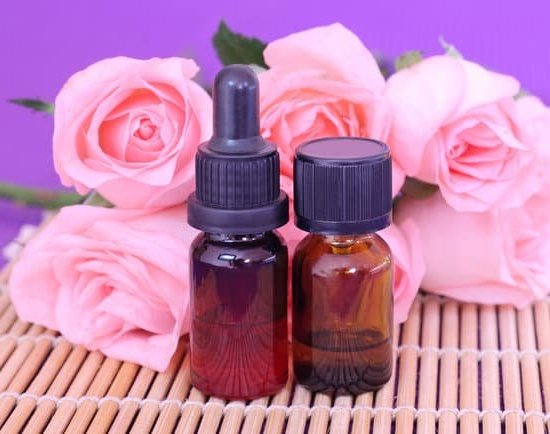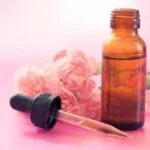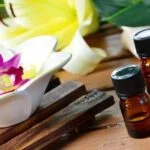Aromatherapy is a popular holistic healing treatment that utilizes essential oils to promote physical and psychological well-being. On the other hand, homeopathy is a form of alternative medicine that believes in the principle of “like cures like” and uses highly diluted substances to stimulate the body’s natural healing processes. Despite both falling under the umbrella of holistic medicine, aromatherapy and homeopathy are distinct practices with unique approaches to wellness.
The origins of aromatherapy can be traced back thousands of years to ancient civilizations such as Egypt, Greece, and China, where aromatic oils were used for their healing properties. In contrast, homeopathy was founded in the late 18th century by German physician Samuel Hahnemann, who developed the principle of dilution and succussion to create potentized remedies. While both aromatherapy and homeopathy have deep historical roots, they have evolved over time to incorporate modern scientific research and advancements.
Key principles of aromatherapy involve using essential oils extracted from plants to promote relaxation, alleviate stress, improve mood, and address various health concerns. Aromatherapists believe that inhaling or applying these oils can affect the limbic system in the brain, which influences emotions and behaviors.
Homeopathy, on the other hand, follows the Law of Similars, where substances that cause symptoms in healthy individuals are used in highly diluted forms to treat similar symptoms in sick patients. Both practices focus on enhancing the body’s innate ability to heal itself but do so through different means.
The Origins of Aromatherapy and Homeopathy
Aromatherapy and homeopathy are two alternative medicine practices that have gained popularity in recent years. Both have ancient origins and have been used for centuries to promote healing and overall well-being. Aromatherapy utilizes essential oils extracted from plants to provide therapeutic benefits, while homeopathy is based on the principle of “like cures like” and uses highly diluted substances to stimulate the body’s natural healing process.
The roots of aromatherapy can be traced back to ancient civilizations such as Egypt, Greece, and Rome, where plant essences were used for their medicinal properties and in religious ceremonies. However, the modern practice of aromatherapy can be credited to French chemist René-Maurice Gattefossé, who coined the term in the 1920s after discovering the healing properties of lavender oil when treating a burn injury.
Since then, aromatherapy has evolved into a widely practiced holistic therapy that promotes relaxation, stress relief, and emotional balance.
On the other hand, homeopathy was founded by German physician Samuel Hahnemann in the late 18th century. Hahnemann believed that substances that cause symptoms in healthy individuals can be used to treat similar symptoms in sick individuals when diluted to infinitesimal levels.
This principle of “like cures like” is central to homeopathic philosophy and is believed to stimulate the body’s vital force to restore health. Homeopathy has since become a controversial practice with fervent supporters and critics alike due to its unconventional approach to medicine.
Key Principles of Aromatherapy
Aromatherapy is a holistic healing treatment that uses natural plant extracts to promote health and well-being. The key principle of aromatherapy is the belief in the therapeutic properties of essential oils, which are extracted from various parts of plants such as flowers, leaves, stems, and roots. These essential oils are believed to have potent healing properties that can help address physical, emotional, and spiritual issues.
Essential Oils and Their Benefits
One of the core principles of aromatherapy is understanding the different types of essential oils and their specific benefits. Each essential oil has unique properties that can stimulate specific areas of the brain when inhaled or applied to the skin. For example, lavender oil is known for its calming and relaxing effects, while peppermint oil is often used for its invigorating and energizing properties. By using essential oils strategically, aromatherapy practitioners aim to harness their therapeutic benefits for overall wellness.
Methods of Application
Another key principle of aromatherapy is knowing the various methods of application. Essential oils can be used in a variety of ways, including inhalation through diffusers or steam baths, topical application through massage or skincare products, and even oral ingestion in some cases (although this should only be done under the guidance of a trained professional). Understanding how to safely use essential oils is crucial to reaping their full benefits without adverse effects.
Key Principles of Homeopathy
Law of Similars
Homeopathy follows the principle of “like cures like,” which means that a substance that causes symptoms in a healthy person can be used to treat similar symptoms in an individual who is unwell. This concept is based on the idea that a substance that can produce symptoms in a healthy person can stimulate the body’s vital force to overcome similar symptoms when taken in small, highly diluted doses.
Individualization
Another key principle of homeopathy is the concept of treating the individual as a whole, rather than just focusing on specific symptoms. Homeopaths believe that each person is unique and may respond differently to treatments based on their physical, emotional, and mental state. By considering all aspects of a person’s health and well-being, homeopaths aim to prescribe remedies tailored to each individual’s needs.
Minimum Dose
In homeopathy, remedies are typically prepared through a process of dilution and succussion (vigorous shaking). The belief is that this process enhances the healing properties of the substance while minimizing any potential side effects. Homeopaths often use highly diluted remedies, sometimes to the point where there may not be a detectable amount of the original substance left in the solution. This minimal dose approach is thought to stimulate the body’s self-healing mechanisms without causing harm.
Exploring the Differences Between Aromatherapy and Homeopathy
Aromatherapy and homeopathy are both alternative healing practices that utilize natural substances to promote well-being; however, they differ significantly in their approaches and applications. Here are some key differences between the two practices:
- Method of Treatment: Aromatherapy primarily involves the use of essential oils derived from plants through methods like distillation or cold pressing. These oils can be inhaled, applied topically, or used in a diffuser. Homeopathy, on the other hand, relies on highly diluted substances derived from plants, animals, and minerals to stimulate the body’s self-healing mechanisms.
- Philosophical Basis: Aromatherapy is based on the idea that aromatic compounds in essential oils can have therapeutic effects on the mind and body through inhalation or absorption into the skin. Homeopathy follows the principle of “like cures like,” where a substance that causes symptoms in a healthy person is used to treat similar symptoms in a sick individual.
- Evidence and Research: Aromatherapy has garnered more scientific research support for its effectiveness in areas such as stress reduction, pain relief, and improved sleep. Homeopathy, on the other hand, remains controversial due to its reliance on highly diluted remedies with minimal active ingredients.
While both aromatherapy and homeopathy aim to promote holistic healing and balance within the body, their methods of application, underlying principles, and level of scientific validation set them apart. It is essential for individuals considering these alternative therapies to explore their unique characteristics before incorporating them into their wellness routines.
- Cost Considerations: Aromatherapy typically involves purchasing essential oils or products infused with these oils, which can vary in price depending on quality and quantity. Homeopathic remedies may also come at a cost but often require professional consultation for personalized treatment plans.
- Regulation and Licensing: In many countries, aromatherapy products are not subject to strict regulations compared to pharmaceuticals or medical devices. Homeopathy faces similar issues with varying degrees of acceptance within mainstream healthcare systems.
- Accessibility: Aromatherapy products like essential oils are widely available both online and in local stores, making them easily accessible for consumers. Homeopathic remedies may be less common in mainstream settings but can be found through specialized practitioners or retailers.
By understanding these differences between aromatherapy and homeopathy, individuals can make informed decisions about which practice aligns best with their health goals and preferences. Both approaches offer unique benefits when incorporated mindfully into one’s overall wellness routine.
Debunking Common Myths About Aromatherapy and Homeopathy
A common myth about aromatherapy is that it is the same as homeopathy, but in reality, they are two distinct practices with different principles. Aromatherapy involves the use of essential oils extracted from plants to promote physical and psychological well-being.
These aromatic compounds are believed to have various therapeutic properties, such as reducing stress, improving sleep, and relieving pain. On the other hand, homeopathy is a system of alternative medicine based on the concept of “like cures like” and involves highly diluted substances to stimulate the body’s natural healing processes.
One of the misconceptions about aromatherapy is that it is not backed by scientific evidence. While some studies on aromatherapy have shown positive effects on certain conditions like anxiety and insomnia, more research is needed to fully understand its mechanisms and benefits.
Similarly, homeopathy has been a subject of debate in the scientific community due to its use of highly diluted substances, which many argue may lack active ingredients to produce therapeutic effects. Despite this controversy, many individuals still find relief from certain symptoms through homeopathic remedies.
Another myth surrounding aromatherapy and homeopathy is that they can cure serious medical conditions or replace conventional treatments. It is important to note that while these practices can complement traditional medicine and enhance overall well-being, they should not be used as a substitute for professional medical advice or treatment. Aromatherapy and homeopathy are best utilized as part of a holistic approach to health and wellness, alongside proper nutrition, exercise, and regular healthcare check-ups.
| Myth | Fact |
|---|---|
| Aromatherapy is the same as homeopathy | They are two distinct practices with different principles |
| No scientific evidence supports aromatherapy | Some studies have shown positive effects but more research is needed |
| Aromatherapy and homeopathy can cure serious medical conditions | They should not replace conventional treatments but complement overall health |
The Scientific Evidence Behind Aromatherapy and Homeopathy
Aromatherapy and homeopathy have gained popularity in recent years as alternative forms of medicine, but many people wonder whether they are backed by scientific evidence. Aromatherapy involves using essential oils derived from plants to promote physical and psychological well-being, while homeopathy is based on the principle of “like cures like” and uses highly diluted natural substances to stimulate the body’s healing process. One common question that arises is: Is aromatherapy homeopathic?
When it comes to aromatherapy, there is some scientific evidence to support its benefits. Studies have shown that certain essential oils can have a positive impact on mood, stress levels, and even physical symptoms like pain and inflammation.
For example, lavender oil has been found to reduce anxiety and improve sleep quality, while peppermint oil may help with headaches and digestive issues. While more research is needed to fully understand how aromatherapy works, many people find relief from a variety of ailments by incorporating essential oils into their daily routine.
On the other hand, homeopathy has been met with skepticism by many in the scientific community due to its reliance on highly diluted substances that often contain no active molecules. Critics argue that any perceived benefits from homeopathic treatments are likely due to a placebo effect rather than any direct physiological effects.
Despite this controversy, some studies have suggested that homeopathy may be effective for certain conditions when used alongside conventional medicine. Ultimately, whether or not aromatherapy is considered homeopathic depends on one’s definition of homeopathy and the specific practices being utilized.
| Aromatherapy Benefits | Scientific Evidence |
|---|---|
| Reduces anxiety and improves sleep quality | Supported by studies on lavender oil |
| Helps with headaches and digestive issues | Peppermint oil shown to be beneficial in some cases |
Integrating Aromatherapy and Homeopathy Into Your Wellness Routine
Aromatherapy and homeopathy are both alternative medicine practices that focus on natural remedies to promote overall well-being. Integrating these two disciplines into your wellness routine can be a beneficial way to enhance your health and address various physical and emotional concerns. By understanding the principles of aromatherapy and homeopathy, you can make informed decisions about how to incorporate these practices into your daily life.
When it comes to integrating aromatherapy and homeopathy into your wellness routine, it is essential to consider the specific needs of your body and mind. Aromatherapy utilizes essential oils extracted from plants to improve mood, reduce stress, alleviate pain, and boost overall health. Whether through inhalation, topical application, or diffusion, incorporating essential oils like lavender for relaxation or peppermint for energy can enhance your daily routines.
On the other hand, homeopathy focuses on using highly diluted substances to stimulate the body’s innate healing mechanisms. By addressing the root cause of an imbalance rather than just treating symptoms, homeopathic remedies aim to restore balance on a holistic level. Incorporating homeopathic treatments like Arnica for muscle soreness or Ignatia for emotional distress can provide gentle yet effective support for your overall well-being.
Ultimately, integrating aromatherapy and homeopathy into your wellness routine is a personal choice that should be based on research, consultation with healthcare professionals, and individual preferences. By exploring the various benefits of these natural therapies and finding what works best for you, you can create a holistic approach to self-care that nurtures both body and mind. Whether used together or separately, aromatherapy and homeopathy offer valuable tools for maintaining balance and promoting wellness in your everyday life.
Conclusion
In conclusion, when considering whether aromatherapy is homeopathic, it is important to note that these two practices are distinct modalities within the realm of holistic healing. Aromatherapy, utilizing essential oils extracted from plants, focuses on the therapeutic benefits of scent and can be incorporated into various wellness routines to promote relaxation, alleviate stress, and enhance overall well-being. On the other hand, homeopathy involves the use of highly diluted substances to stimulate the body’s natural healing processes.
While both aromatherapy and homeopathy share a commitment to holistic healing and mind-body wellness, it is essential to recognize their unique principles and applications. Aromatherapy emphasizes the power of scent and its effects on emotions and physical health, while homeopathy operates on the principle of “like cures like” and individualized treatment based on symptoms. Understanding these differences can help individuals make informed decisions about incorporating aromatherapy or homeopathy into their wellness routines.
Ultimately, whether you choose to explore aromatherapy or homeopathy as part of your holistic approach to health is a personal decision that should be guided by your own research, preferences, and experiences. Both practices have their own benefits and limitations, so it is crucial to consult with qualified practitioners or healthcare professionals when integrating them into your wellness routine.
By staying informed and open-minded, you can truly harness the potential benefits that aromatherapy and homeopathy have to offer in promoting overall well-being.
Frequently Asked Questions
Is Aromatherapy a Homeopathy?
Aromatherapy is not considered homeopathy. While both practices involve the use of natural substances for healing, they differ in their principles and methods. Aromatherapy focuses on the use of essential oils extracted from plants, whereas homeopathy involves highly diluted substances to treat various ailments through the body’s energy system.
What Type of Therapy Is Aromatherapy?
Aromatherapy is a type of alternative therapy that utilizes essential oils to promote physical, emotional, and mental well-being. By inhaling or applying these oils to the skin, individuals may experience relaxation, improved mood, pain relief, and other therapeutic effects. Aromatherapy can be used in conjunction with traditional medicine or as a standalone treatment.
What Are Examples of Homeopathy?
Examples of homeopathic remedies include Arnica montana for muscle soreness and bruising, Calendula officinalis for skin irritation or minor wounds, and Oscillococcinum for flu-like symptoms. These substances are highly diluted in water or alcohol to stimulate the body’s self-healing abilities according to the principles of homeopathy.

Are you looking for a natural way to improve your health and wellbeing?
If so, aromatherapy may be the answer for you.




